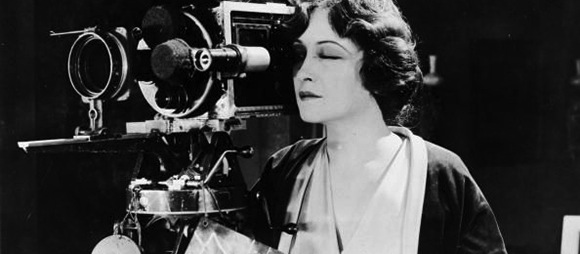Study Releases Predictably Depressing Findings on the State of Female Directors in British TV
Today in Depressing

Directors UK, a professional association of film and TV directors, has released a study on the gender breakdown of directors working in television in the UK. The tl;dr of their findings is that last year only eight percent of episodes of television drama were directed by women, with the number of female directors for the BBC and ITV’s flagship shows–Doctor Who and Poirot, respectively—totaling an impressive zero. I’m sorry, did I say impressive? I meant “incredibly frustrating,” especially when you consider five years ago five percent of those shows’ directors were repping it for the ladies.
More details on the study, explanations for the lack of female directors, and the BBC’s response are behind the cut.
The lack of female directors working for the BBC and ITV is particularly egregious when you consider that there are actually more women than men now entering the entertainment industry, though they’re getting fewer jobs and don’t get paid the same as their male counterparts. Says Kate Kinninmont, chief executive of Women in Film and TV (UK):
“We’ve got more women than men coming into the industry in their twenties; they’re better qualified and they work longer hours, yet they earn on average £6,700 per annum less than their male counterparts.”
Kinninmont attributed the salary gap to the fact that women aren’t negotiating; it’s a sentiment echoed by industry vet Hayley Mackenzie, who says “What’s also happening here is that there’s a confidence shortfall. Many women don’t flaunt their egos in the same way [as men]. I know plenty of male directors who are way more confident than their experience should permit. The women directors I know are quietly confident.”
Adding to this complicated issue is anecdotal evidence presented in the study of women being asked about their family commitments, and then oftentimes when they are hired it’s on family dramas or kids shows. “Factual television” also offers more opportunities; between 20 and 30 percent of those shows have female directors. (I wonder how many narrative shows, percentage-wise, had even one female director last year… though I suspect the number will make me angry.)
Says director Beryl Richards, who chaired the study:
“There’s a whole new generation of female directors not getting through… [Some employers question whether women] have the authority to lead a largely male crew, or the technical knowledge.”
A BAFTA-nominated female director who spoke at the presentation of Directors UK’s findings added:
“The older female directors thought it was us younger women taking all the work, and we thought the same of them. Suddenly there was this moment when we all realized that none of us were getting the work: it’s all going to the men.”
Of course, there’s no reason to think female director = weak-willed and somehow incapable of directing, assuming that female director has the same professional and educational qualifications as their male counterparts (and there’s no reason to think that wouldn’t be the case). Directing half-hour or hour-long episodes is where a lot of new directors cut their teeth; having extensive experience isn’t normally a requirement, so there’s no reason the new female directors entering the field shouldn’t have the same opportunities as the men.
This is a more complex issue than just “men don’t like women, therefore they don’t hire them,” as Kinninmont’s statement about confidence suggests. There’s no easy solution. Kinninmont says she’s not in favor of quotas, but at the same time she wants broadcasters and producers be more open about their recruitment practices: “We need complete transparency. Reports like this one by Directors UK show the hard data, and you can’t argue with that. When people see results like this, they are really shocked.”
That, to me, is what it comes down you. You can argue about the finer points of why the figures are skewed all day long, but the fact of the matter is that only eight percent of television drama directors in the UK being female is unacceptable, and it needs to change. It’s a sentiment that’s happily shared by Ian Critchley, head of creative resources at the BBC, who said:
“We take these figures very seriously, and are looking at how to learn from our successes with women directors in areas like comedy, so that we can offer a range of measures to support them in drama.”
You do that, BBC. Use those “range of measures” and surpass my expectations.
(The Telegraph, via Jezebel)
- Doctor Who Hasn’t Had a Single Female Writer Since 2008, And It’s Making Me Angry
- The Number of Women Selling Speculative Screenplays In Hollywood Reaches New Low
- Women In Film Talk About Why There Are So Few Women In Film
Have a tip we should know? [email protected]